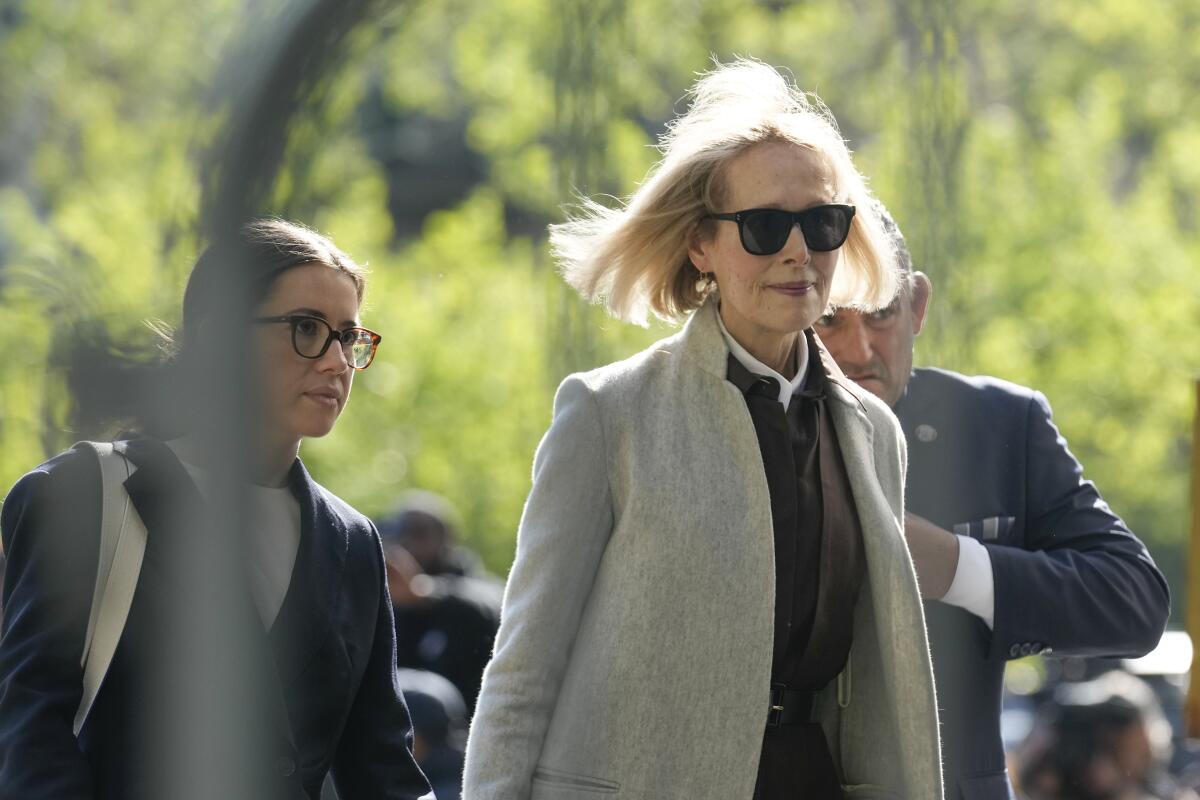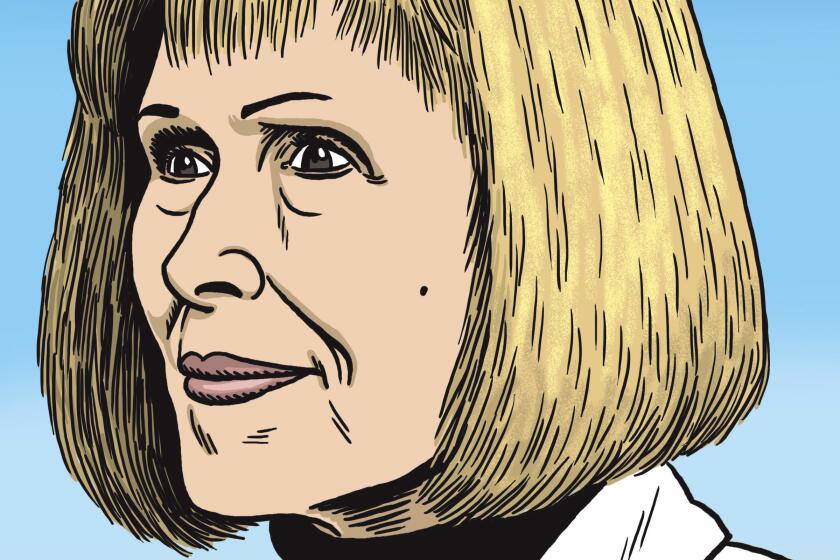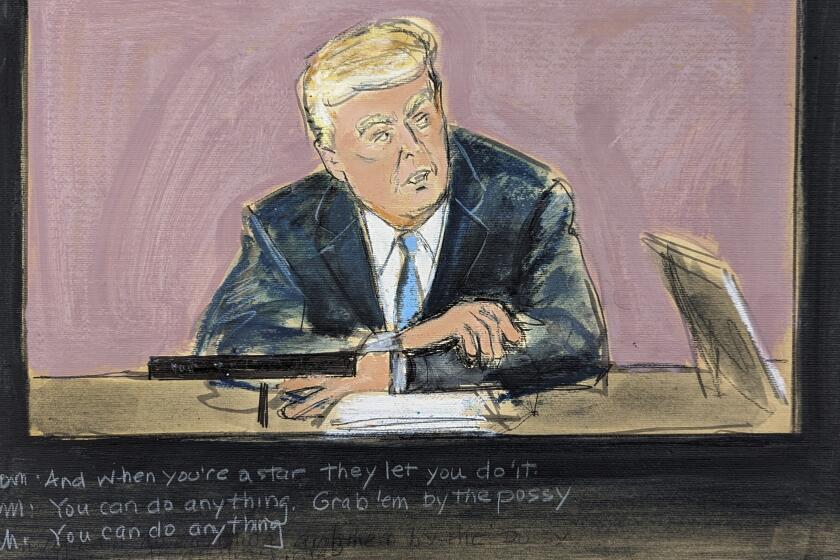Opinion: Anita Hill: What E. Jean Carroll’s example can teach us about ending sexual abuse and harassment

E. Jean Carroll’s continued troubles with former President Trump, even after a jury found him liable for sexual abuse and defamation in a civil trial this month, show that “winning” doesn’t mean that all has been made right for a survivor.
In a town hall on CNN the day after the verdict, Trump called Carroll a “whack job,” among other comments. On Monday Carroll’s legal team amended a different outstanding defamation lawsuit against the former president, seeking an additional $10 million in compensatory and punitive damages for his post-verdict remarks.
The verdict holding Trump accountable was striking because it showed that a jury of six men and three women can believe survivors of sexual assault — even when the accused abuser is a former president. And yet her fight continues.
A Manhattan federal jury found Trump liable for assaulting the former advice columnist, then defaming her by calling her a liar
During Carroll’s April testimony, she spoke about the physical and mental trauma she suffered because of the former president’s attack, including how the endless barrage of threats she had received since filing her complaint led her to regret initiating the lawsuit.
In the wake of the #MeToo movement, we have begun to hear and take to heart similar stories from survivors of sexual assault and harassment. An entertainment industry survey in 2020 by the Hollywood Commission, a nonprofit that I lead, captured some of those voices. People reported needing years of therapy and turning “to anti-anxiety medicine to cope.” One individual summed up the impact of her workplace harassment experience: “Abuse can be physically, mentally and emotionally inflicted, whether witnessed by others or in a one-on-one encounter. … And your reputation and your livelihood are at stake.”
The unfortunate situation for most workers is that much offensive behavior still goes unreported because survivors and witnesses do not think anything will be done. Survivors’ everyday experiences tell them that they will not be believed or that their reports will not be taken seriously.
But, while slow, progress is being made. Last year the Hollywood Commission found that in the years since the #MeToo movement many workers were somewhat encouraged by the real-world consequences faced by high-profile serial abusers such as Harvey Weinstein. But they also are not yet seeing that kind of accountability trickle down to the cases of abuse, harassment and bullying in their own lives. This is discouraging and unacceptable.
A federal jury in New York quickly returned a verdict that found the former president liable for sexual abuse and defamation of the plaintiff.
Structural barriers continue to keep survivors from having their day in court or even a chance to have their claims reviewed by a company’s human resource officer. Carroll’s now-resolved civil claim would never have come before a jury but for a temporary change in New York state law allowing sexual assault victims to sue for harm done decades earlier, regardless of the statute of limitations. New York’s suspension of the statute of limitation will soon expire. Many states have no such suspension. Delays in reporting will leave abuses unpunished.
That’s one reason it’s so important to remove the kinds of structural barriers that keep workers from being heard. Workers in the entertainment industry have told us that they need an easy-to-use, one-stop-shop where they can make a record of their experiences — which we are building. It will also provide resources for how to and whether to report harassment or abuse in the workplace.
These tools and resources are necessary, but not sufficient. Victims can’t be believed if they’re never heard. Our society must work to remove legal barriers survivors and victims face when they seek to file claims, like the statute of limitations that initially kept Carroll from pursuing her accusation.
No single verdict will eliminate our cultural tendency to defer to accused abusers even in the face of compelling evidence. We can be optimistic that more cases and more public discussions of those cases may move our culture to one that sees accusers as equally credible as the people they accuse. And along with cultural change, structural changes are needed so that victims of harassment, abuse and bullying can lodge complaints with confidence that there will be accountability when the facts support them.
E. Jean Carroll pressed her case. She was heard and believed. And now she is pressing it again. We must follow her example and continue to press ours — to put an end to sexual assault, abuse, and harassment and the harm they inflict upon us all. It is the only way to create the better world we all deserve.
Anita Hill is a professor at Brandeis University’s Heller School for Social Policy and Management and president and board chair of the Hollywood Commission.
More to Read
A cure for the common opinion
Get thought-provoking perspectives with our weekly newsletter.
You may occasionally receive promotional content from the Los Angeles Times.












